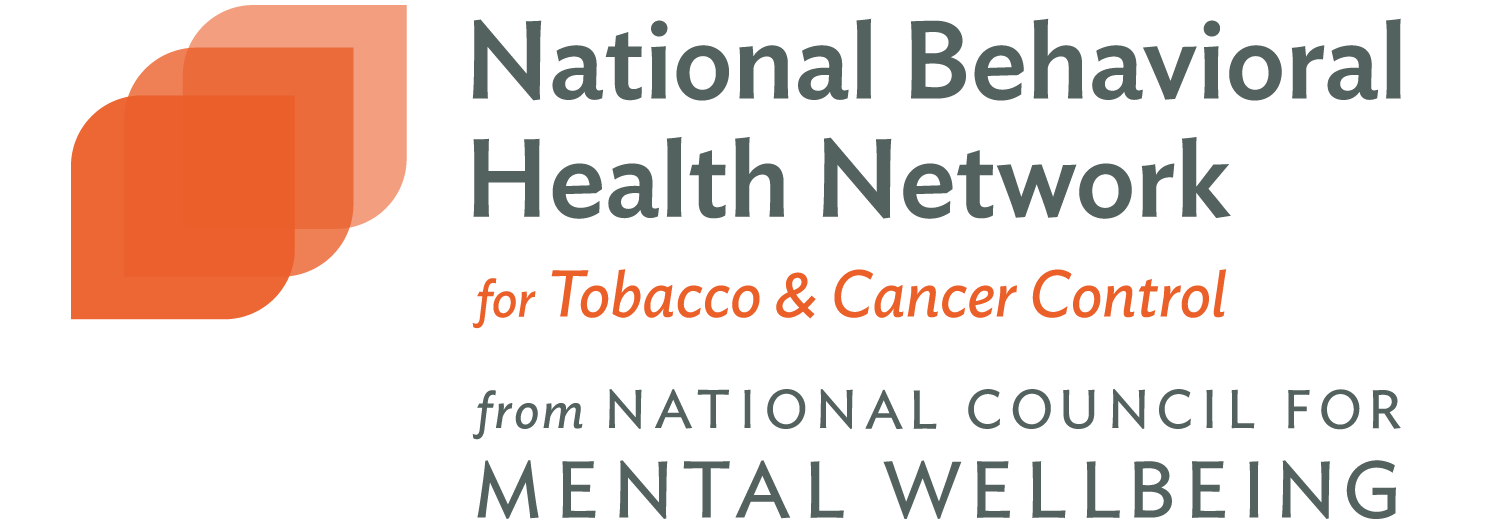Alongside public health agencies and healthcare providers who persistently navigated the third year of a global pandemic, eleven states embarked upon a six-month practice change intensive to further commit to their tobacco control efforts. The National Behavioral Health Network for Tobacco and Cancer Control (the Network) completed the twelfth Community of Practice (CoP) in 2022 with diverse state teams who came together with a uniform goal of reducing commercial tobacco use disparities among individuals with mental health and substance use challenges. For the first time, the State Tobacco CoP was joined by two other Networking2Save National CDC Networks, the National Native Network and the National LGBT Cancer Network, who shaped the cohort experience through offering guidance and expertise on exploring intersectionality to further understand and reduce commercial tobacco – related health disparities. State teams optimized opportunities for collaboration and learnings by participating in webinars, peer exchanges, tailored technical assistance, affinity calls with the Networking2Save National CDC Networks, and individual coaching from expert faculty.
As COVID-19 continued to burden the public health and behavioral health workforce, state teams juggled multiple priorities within their roles. While teams encountered challenges in engaging mental health and substance use organizations and other key stakeholders due to capacity or turnover, the 2022 State Tobacco CoP teams quickly adapted to identify opportunities and make progress towards implementing evidence-based tobacco cessation practices into behavioral health systems.
Key accomplishments from this year’s cohort include:
- Alabama: Conducted a Behavioral Health Facility Tobacco Policy Assessment across the state in collaboration with the Alabama Department of Mental Health. In this effort, Alabama was able to build upon the accomplishment of a CoP Alumni state by adapting a Behavioral Health Assessment tool developed by CoP alumni team in Virginia.
- South Carolina: Implemented a comprehensive tobacco-free campus policy that includes traditional smoking, smokeless, and vaping products across 16 community mental health centers with 60 sites alongside 19 substance use treatment sites.
- Tennessee: Developed Tennessee Behavioral Health Tobacco Policy & Protocol Change toolkit that includes guidance on commercial tobacco use screening, counseling, nicotine replacement therapy (NRT) and tobacco-free policies.
- Texas: Implemented a tobacco cessation program in partnership with the Maverick County Hospital District and the Texas Ryan White program that serves the lower socio-economic individuals. During this implementation, Texas collaborated with the LGBT Cancer Network to receive guidance on supporting the LGBTQ+ community in Maverick County as well.
- New Mexico: Recruited and engaged with 49 mental health and substance use providers across New Mexico to initiate health systems change.
- South Dakota: Completed trainings with mental health and substance use organizations on how to discuss tobacco use with patients and refer to the Quitline .
- Missouri: Increased funding to the Department of Health and Senior Services Tobacco Prevention Control Program by $2.5 million dollars, which will expand evidence-based nicotine use treatment services and tobacco-free campus policies across mental health and substance use organizations in Missouri.
- Montana: Established a partnership with the Montana Behavioral Health & Developmental Disabilities Division, creating opportunities for resource sharing and connecting prevention and education specialists.
- Nevada: Collaborated with peer CoP States and set realistic goals to increase the number of smoke – free mental health and substance use organizations.
- Arkansas: Partnered with substance use treatment facilities and community mental health centers to promote the Be Well Arkansas website that includes free resources for facilities to include posters, Quitline cards and more.
- Kansas: Initiated the Governor’s Behavioral Health Services Planning Council and will include a tobacco subcommittee. Hosted a training “Navigating the Reimbursement Maze” to understand billing and coding for tobacco cessation services.
In addition to states’ achievements throughout the CoP, the Network, National Native Network and the National LGBT Cancer Network created space for the state teams to further reflect upon tobacco – related health disparities through an intersectional lens.
Key learnings from collaborating with the other networks include:
- Consider the connection to trauma among priority populations when designing and implementing tobacco cessation efforts.
- Understand the tobacco industry’s predatorial marketing to priority populations and the significant barriers to mental health, substance use and tobacco cessation care.
- Build trust and cross-sectoral partnerships with native communities rooted in respect for their autonomous governance and diversity of culture.
The Network is excited for the state teams to continue building partnerships across the field and integrating an intersectional lens into tobacco cessation programs within mental health and substance use organizations.
Interested in addressing tobacco and cancer control? Need support in developing an action plan, engaging staff and/or receiving training and technical assistance? To learn more about the Network and gain direct access to free resources, training, e-digest, or to join our next CoP visit BHtheChange.org or email Youlim Song at YoulimS@thenationalcouncil.org

